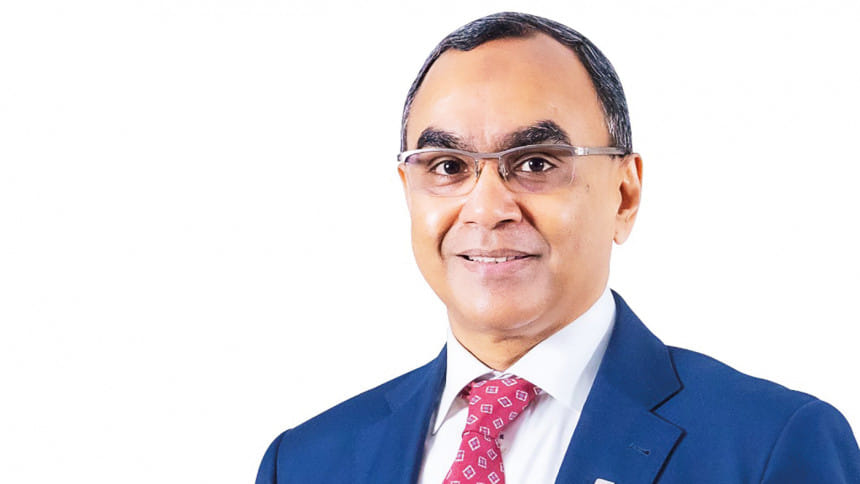Green bonds and sustainability linked bonds could be instrumental

The Daily Star (TDS): Mutual Trust Bank has been recognised as a top performer in the 'Sustainability Rating 2023' by Bangladesh Bank. What are the most innovative and impactful sustainable financing products or strategies that contributed to this achievement?
Syed Mahbubur Rahman (SMR): Our country is one of the most climate-vulnerable in the world, facing frequent disasters and increasingly severe pollution. In this context, sustainability is more crucial than ever. As a responsible bank, MTB is diligently maintaining sustainability in its operations and financing. We consistently ensure regulatory compliance at every level of our operations, while our care for people and the planet remains at the core.
In our regular activities, we strive to improve our standards in five key areas: Sustainable Finance Indicators, CSR Activities, Green Refinance, Core Banking Sustainability, and Banking Service Coverage. According to Bangladesh Bank, these are the five key factors on which the Sustainability Rating is assessed. Keeping these factors in mind, we have worked persistently to excel in all these areas. Both disbursements in green financing and sustainable finance increased in 2023 compared to the previous year. Notably, financing has risen for energy-efficient machinery, green CMSMEs, and green buildings.
We have also allocated our CSR funds to several key projects and events, such as promoting a plastic-free campus, empowering the Kora tribe, and supporting skill development projects for women. We are committed to leading by example and passionately contributing to the well-being of the communities and the environment in which we operate. We are truly humbled and grateful for the central bank's recognition of our efforts. This recognition will serve as an impetus for us to contribute further and join forces to drive positive change.
TDS: What future plans does Mutual Trust Bank have to further enhance sustainability within the financial sector?
SMR: MTB is continuously upgrading its standards with regard to sustainability by following the central bank's guidelines and aligning with international best practices, SDGs, financial inclusion, and climate change. Paving the way for a decarbonisation pathway is next on our agenda. However, such an initiative requires rigorous data and scenario analysis. As the future unfolds, MTB will take significant strides to achieve our climate targets by aligning with global best practices. We will prepare internally and collaborate with external counterparts to better equip stakeholders for this journey. This includes capacity development, sector-specific technological advancements and their availability, opportunity costs, and the impact of divestments.
Notable impediments include data authenticity, technical know-how, and the availability of appropriate resources. Nevertheless, through transparency, agility, and good governance, we will navigate towards our goal. Additionally, we will publish disclosures in line with central bank and international guidelines. MTB has already incorporated TCFD into its annual sustainability report. In the coming days, we will provide more detailed information through TCFD, such as physical risks and transition risks due to climate change, as well as metrics and targets for GHG emissions.
TDS: What forms of government support would be most effective in advancing the efforts in sustainable finance?
SMR: The government can take initiatives to attract more international funds to increase financing in sustainable finance through financial institutions. Green bonds and sustainability-linked bonds could be instrumental in boosting sustainable finance in Bangladesh. Although there is a guideline for green bonds from the central bank, implementation has been limited. The government could assist financial institutions in this regard. Furthermore, more capacity building and education are required nationwide on sustainable finance.

 For all latest news, follow The Daily Star's Google News channel.
For all latest news, follow The Daily Star's Google News channel. 



Comments